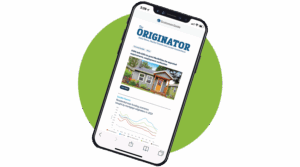What is a bridge loan?
A bridge loan is a mortgage that “bridges” the gap between the expiration of a short-term loan and a more permanent mortgage. This type of financing is also known as gap funding and can apply to either residential or commercial properties. Borrowers often use this type of hard money loan to refinance and to get cash-out of the property.
How does a bridge loan work?
Bridge loans can be in first, second or even third lien position and are made with a clear exit plan of how the borrower will pay off the loan. When evaluating a loan amount, bridge loan lenders consider LTV, CLTV and ARV. Many kinds of lenders offer this type of loan, including banks, non-depository lenders and hard money lenders.*
What are commercial real estate bridge loans used for?
Commercial bridge loans are used by developers, real estate investors and other commercial borrowers in several different circumstances, including to:
- Refinance (pay off) an expiring term balloon loan to position the property for a permanent loan with terms more favorable to the borrower
- Refinance with cash-out to make repairs in the short term, so the property will qualify for a commercial bank loan
- Refinance an expiring term loan and carry the business for a few months until an SBA loan comes through
- Carry a subdivision development until the homes are sold
- Stabilize a multifamily property so that it’s cash flow and debt obligations will qualify it for a permanent loan
- Cash-out in order to finish a construction project that’s exhausted its financing
Find a commercial bridge loan lender
What are some common types of bridge loan financing?
While these loans come in all shapes and sizes, certain scenarios are more common than others, including:
- Nonrecourse, interest-only payments, starting at $5M
- Customized bridge loan to meet the business requirements
- $1M-$20M bridge loans against income-producing property; up to 65% LTV with a three-year term
- Bridge loan rates from 6.99% to 8% for loans up to 60% LTV without prepayment penalty
- Nonrecourse loans starting at 8% up to 75% LTV
- Up to 80% LTC when used for value-add or a repositioning
- No FICO and foreign nationals allowed up to 75% LTV
- $5M maximum loan amount for short-term financing of raw land, developed lots and farms
- Six-month term loan up to 85% LTV from $3M to $100M
- FICO minimum of 600, up to 75% ARV, 12-month term, extensions available
- Fixed rate, interest-only payments
- Bridge loans on office, industrial, multifamily, retail, hospitality and mixed use commercial real estate
- Bridge loans in Texas, New York, Florida or California
What are residential bridge loans?
These loans mortgage 1-4 units, encompassing everything from a home or a condo to a quadraplex. A real estate investor commonly pays cash for the residence then needs to rehab it to rentable or sellable quality. In order to do this, the investor may take a 6-month bridge loan that leverages the equity he already has in the fully-owned residence, to pay for improvements. Lastly, the borrower exits the bridge loan via conventional financing or sale of the property.
Another standard scenario is when a homeowner takes out gap funding to pay for the expenses and down payment for buying a new home, perhaps in a job transfer. When the first home sells, the homeowner pays off the bridge loan. Private money bridge loans are also available for borrowers that need to obtain gap funding quickly.


